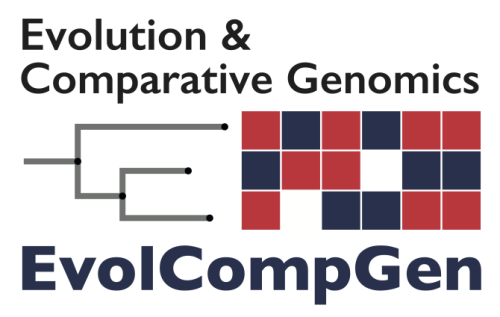Evolution and comparative genomics are deeply intertwined with computational biology. Computational methods for evolution, such as phylogenetic inference methods or multiple sequence alignment are widely used, yet the underlying problems remain far from “solved” and are indeed intense areas of research. With the advent of high-throughput sequencing technologies, more and more genome-related data are available and the challenges for evolutionary and comparative genomics are also increasing. At the same time, evolutionary and comparative genomics are inherently “transversal” disciplines and various biological areas of research have evolutionary components (e.g. cancer genomics, epidemiology, toxicology, population genetics, functional genomics, structural biology just to name a few). For these reasons, the scope of this community is intentionally kept broad.
Keywords: genome evolution, phylogenomics, comparative tools for genome assembly, genome rearrangements, gene relationship classification, genome variation, population genomics, comparative epigenomics, epidemiology, cancer evolution genomics, genome annotation
